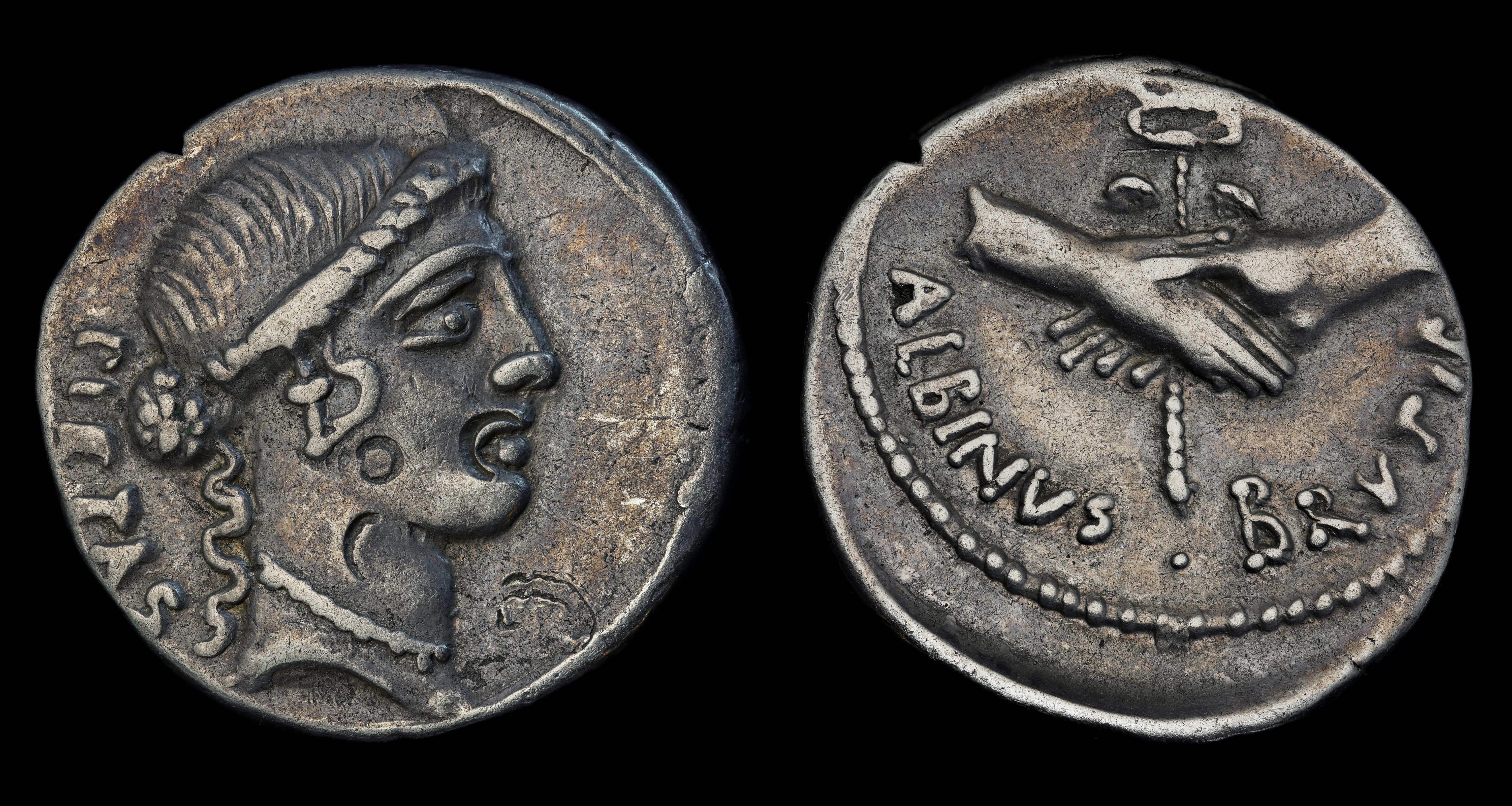The Other Brutus
Decimus Junius Brutus Albinus. You may recognise part of that name as “Brutus” competes with the likes of Judas and Quisling when one thinks of betrayal. It’s likely, however, that you have a different Brutus in mind, a distant cousin of Decimus named Marcus Junius Brutus. Both were involved in the assassination of Rome’s dictator, Julius Caesar, but thanks to Shakespeare one of these figures is well-known and the other forgotten.
Decimus was born in 81 BC, son of a Roman consul, and well-placed in Roman society for a successful career. The gens Junius had a long and famous history, dating back to the last king of Rome, Lucius Tarquinius Superbus. The nephew of Tarquinius was Lucius Junius Brutus, a legendary figure in Rome’s founding: partly responsible for ending the rule of kings in Rome and one of its first consuls. Although taking place more than 400 years before the birth of Decimus, the actions of Lucius Brutus would come to influence Decimus and his relative Marcus.
In 509 BC Lucius Brutus was in charge of the king Tarquin’s personal bodyguard and was well aware of the tyranny with which the king ruled Rome. It was after the rape of a close friend’s wife by the king’s son that Lucius Brutus conspired to overthrow the king and expel him and his family for good. However, they didn’t want to stop there. King Tarquin’s rule had such an effect that Lucius Brutus was determined to prevent Rome from ever having a king again. He and his co-conspirators swore an oath immediately following Tarquin’s expulsion:
By this guiltless blood before the kingly injustice I swear – you and the gods as my witnesses – I make myself the one who will prosecute, by what force I am able, Lucius Tarquinius Superbus along with his wicked wife and the whole house of his freeborn children by sword, by fire, by any means hence, so that neither they nor any one else be suffered to rule Rome
In 44 BC, Julius Caesar had proclaimed himself Dictator perpetuo (dictator for life), after having already held several temporary dictatorial positions over the previous five years. Caesar was now elevated to a position of divine rule, similar to that of a king. Decimus Brutus had spent the previous decade building a distinguished military career and was close to Caesar. He fought under Caesar in Gaul and during the early years of Caesar’s Civil War but joined the plot against him alongside conspirators Marcus Brutus and Gaius Cassius Longinus. It is said that Cassius convinced Decimus and Marcus to join after reminding them of what their ancestor had pledged 450 years earlier.

ROMAN REPUBLIC. Albinus Bruti f.
Denarius (48 BC)
Dates: 48 BC
Mint: Rome
Obv: Bust of Pietas right; PIETAS behind
Rev: Two joined hands holding a caduceus; ALBINVS BRVTI•F• below
Dimensions: 18.82mm, 3.87g, 3h
Ref: Crawford 450/2
While Marcus Brutus is now the more well-known of the two for his betrayal, it is likely that Decimus was the one who truly betrayed Caesar. Not only had Decimus fought for and alongside Caesar, but Caesar had bestowed important titles on Decimus, said he loved him as a son, and even named him in his will. Appian believes that Caesar had all but adopted Decimus. On the day of the assassination itself, he convinced Caesar to meet the senate and accompanied him on the way. Shakespeare famously has Caesar crying out “Et tu, Brute?” as he is stabbed by Marcus Brutus but it is more likely Caesar would have reacted this way to Decimus’ thrust of the knife. Marcus had long opposed Caesar while Decimus had served with him recently for many years and even dined with Caesar the previous night.
Following the assassination, in 43 BC Decimus Brutus would meet his end after a long game of cat and mouse with Marc Antony. We can largely thank Shakespeare for Decimus being far less known than the other Brutus – he was an insignificant character in Shakespeare’s play. While we’ll never know who Caesar felt more betrayed by, or if he did utter those famous words, it is likely that we should be speaking of Decimus and not Marcus when we think of great betrayals in human history.
